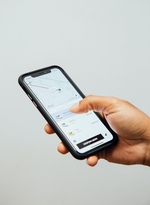Alexander Wenz
Research Fellow
University of Mannheim
Welcome to my website.
I am a Research Fellow in Survey Methodology at the Mannheim Centre for European Social Research (MZES) at the University of Mannheim. I also serve as Vice President of the European Survey Research Association (ESRA) in 2023-2027.
My research focuses on the quality of digital methods of data collection. I am particularly interested in identifying and reducing representation and measurement errors in web surveys, smartphone apps and wearable sensors, digital behavioral data, and online panels. I am PI of the project Acceptance of Smartphone Technologies for Social Science Data Collection funded by the Baden-Württemberg Stiftung (2023-2026).
At the MZES, I work in the Data and Methods Unit where I offer methods consulting on all aspects of survey design, data collection, and analysis to planned and funded projects at the institute. I also co-organize the Mannheim Research Colloquium on Survey Methods and the MZES Social Science Data Lab.
Please reach out via email if you want to know more or are interested in collaborating.
Education
-
Ph.D. Survey Methodology, 2018
University of Essex
-
B.A. Politics and Public Administration, 2014
University of Konstanz
